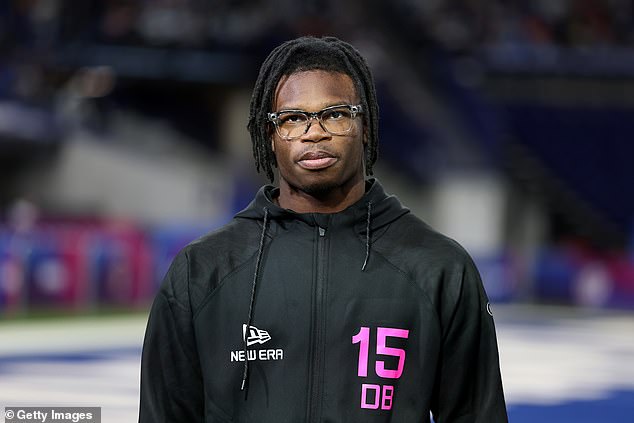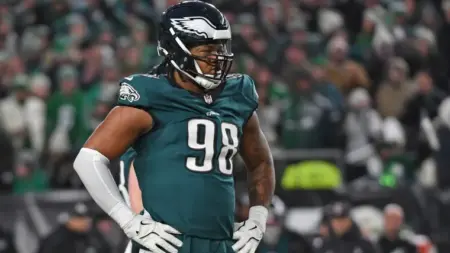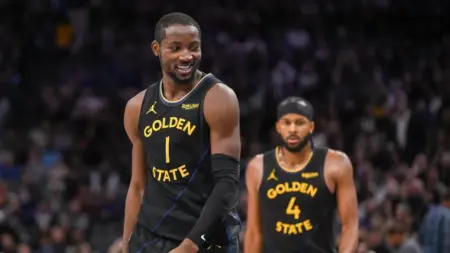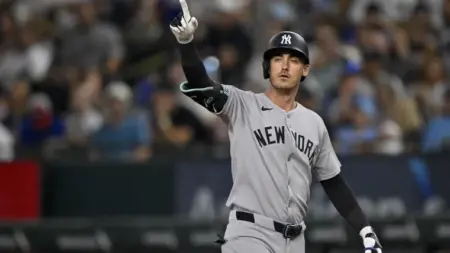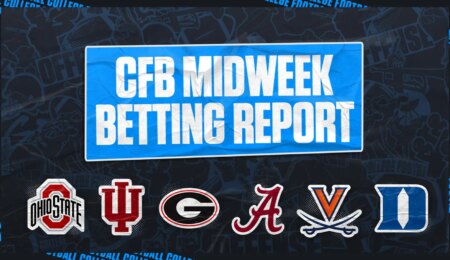Travis Hunter’s Bold Claim on Being a Two-Way Player
Travis Hunter, the highly touted prospect and possible No. 1 overall pick in the upcoming NFL Draft, made waves on Friday when he compared his job as a two-way player to that of MLB star Shohei Ohtani. Hunter, who starred as both a wide receiver and cornerback at Colorado, is listed at both positions at the NFL Combine. Ohtani, on the other hand, has achieved rare success in Major League Baseball as both a hitter and pitcher, hitting 54 home runs last year and maintaining a 3.01 career ERA. When asked who had it harder as a two-way player, Hunter firmly backed himself. "Probably me, what I do in football because it is a lot on your body," Hunter told reporters. "Ohtani, he’s a great player, but you gotta do a lot in football." The statement drew significant criticism from fans on social media, with many calling Hunter delusional and questioning his understanding of the difficulty of both sports.
The Backlash and Criticism
The backlash was immediate and fierce. One fan labeled Hunter’s claim as "delusional," while another called it "the dumbest take I’ve heard in a very long time." The intensity of the criticism highlighted the deep respect many have for Ohtani’s unique talent. One commenter argued, "Hitting a baseball is the hardest thing to do in sports," emphasizing the unparalleled difficulty of Ohtani’s dual role. Another fan stated, "If he does it in the NFL at a high level, I’ll hear the argument, but at this point in time, it’s laughable." The sentiment was clear: Ohtani’s achievements, particularly in an era where specialization is the norm, are considered extraordinary and unparalleled. Hunter’s claim, in contrast, was seen as premature and lacking the necessary evidence to back it up.
Hunter’s Unique College Career
Despite the criticism, Hunter’s college career at Colorado was indeed impressive. He excelled on both sides of the ball, demonstrating versatility and talent that are rare in modern football. Hunter’s ability to play both wide receiver and cornerback at a high level is a testament to his athletic prowess and dedication. At the NFL Combine, he reiterated his desire to play 100 percent of the snaps at both positions, a feat that no one has accomplished in the NFL. "Nobody has done it, but I feel like I put my body through a lot," Hunter said. "I do a lot of treatment. People don’t get to see that part of what I do for my body to make sure I’m 100 percent in each game. But I feel like, because nobody has done it, and I know I can do it." His confidence and ambition are undeniable, but the practicality of his goal remains to be seen.
The NFL’s Perspective on Hunter
As Hunter prepares for the NFL Draft, the opinions of NFL teams and executives provide insight into his potential role in the league. Browns GM Andrew Berry indicated that the team would see Hunter "primarily" as a receiver first, while Titans coach Brian Callahan envisioned him playing more defense. Eliot Wolf, the executive vice president of player personnel for the Patriots, suggested that Hunter would "major" on one side of the ball and sprinkle in on the other. Despite his desire to play both positions, it appears that NFL teams are more cautious and may lean towards utilizing his skills in a more specialized role. This pragmatic approach is driven by the physical demands of the NFL and the need to maximize a player’s impact on the field.
The Legacy of Deion Sanders
The comparison to Deion Sanders, Hunter’s college coach, is particularly relevant. Sanders, known for his dual role as a receiver and cornerback in the NFL, finished his career with 53 interceptions and 60 receptions. While Sanders eventually settled into more of a defensive player, his versatility and impact on the game were significant. Sanders’ success as a two-way player in the NFL is a rare and impressive achievement, and Hunter’s ambition to follow in his footsteps is understandable. However, the modern NFL’s emphasis on specialization and the increasing physical toll of the sport make Hunter’s goal particularly challenging. The legacy of Sanders serves as both an inspiration and a benchmark for Hunter’s aspirations.
The Road Ahead for Travis Hunter
Whatever position he plays, Hunter will undoubtedly hear his name called at the NFL Draft on April 24. His unique skill set and bold claims have already made him a topic of discussion and debate. Whether he will be able to translate his college success to the professional level, and whether he will be able to play both receiver and cornerback, remains to be seen. The NFL is a different world, and the challenges he faces are significant. However, Hunter’s confidence and determination are clear, and he has the potential to make a significant impact in the league. The coming months will reveal whether his ambition and talent will be enough to overcome the skepticism and prove his worth as a two-way player.

